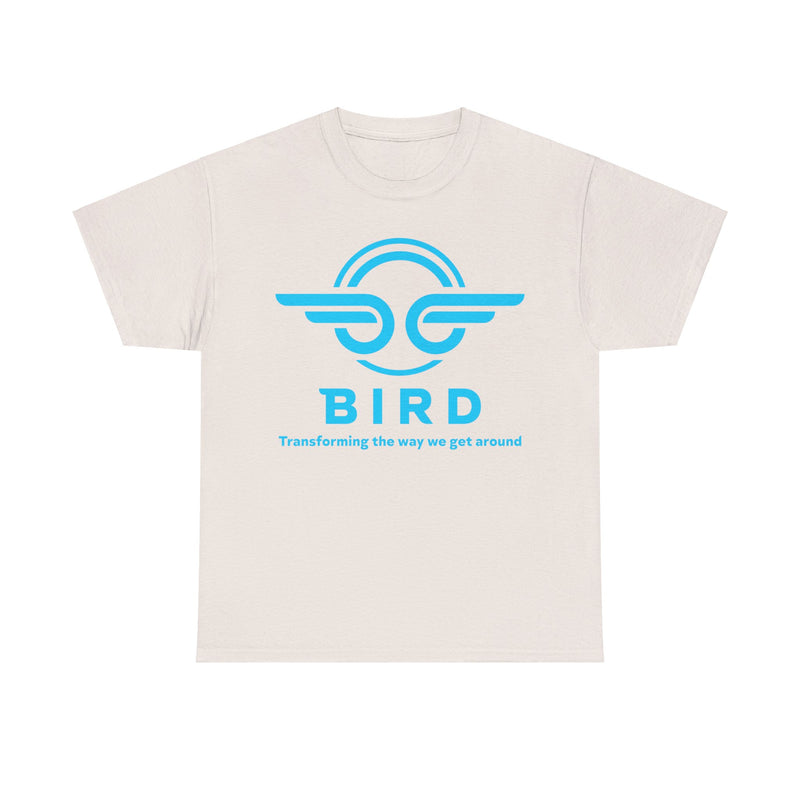
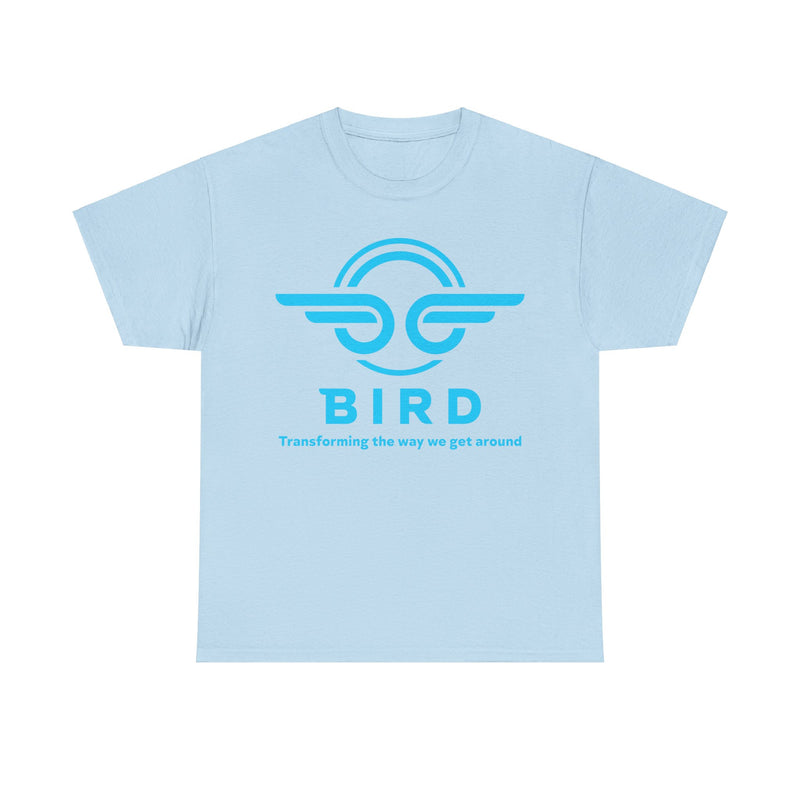
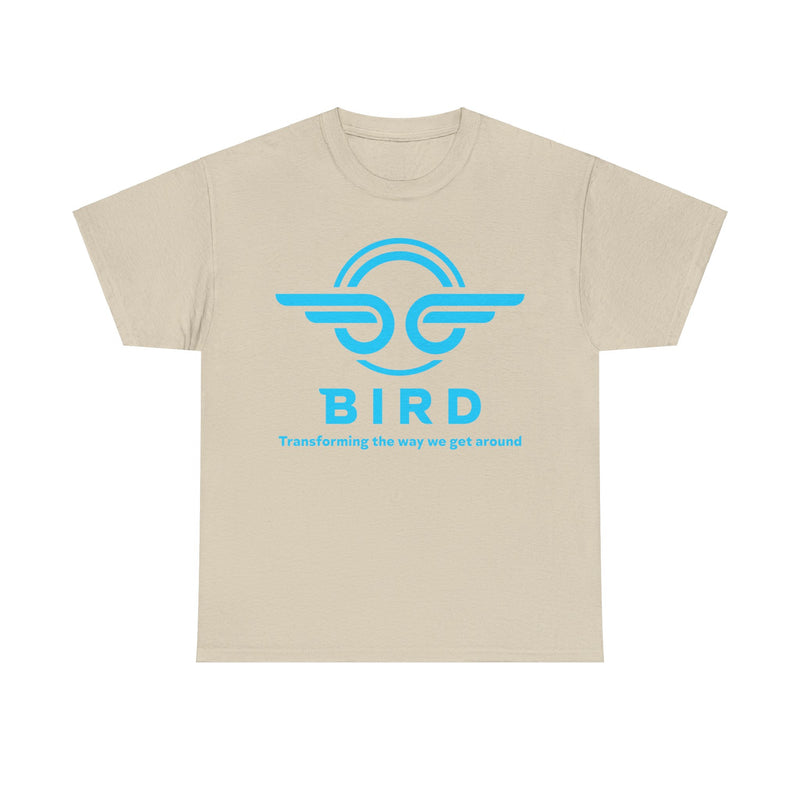
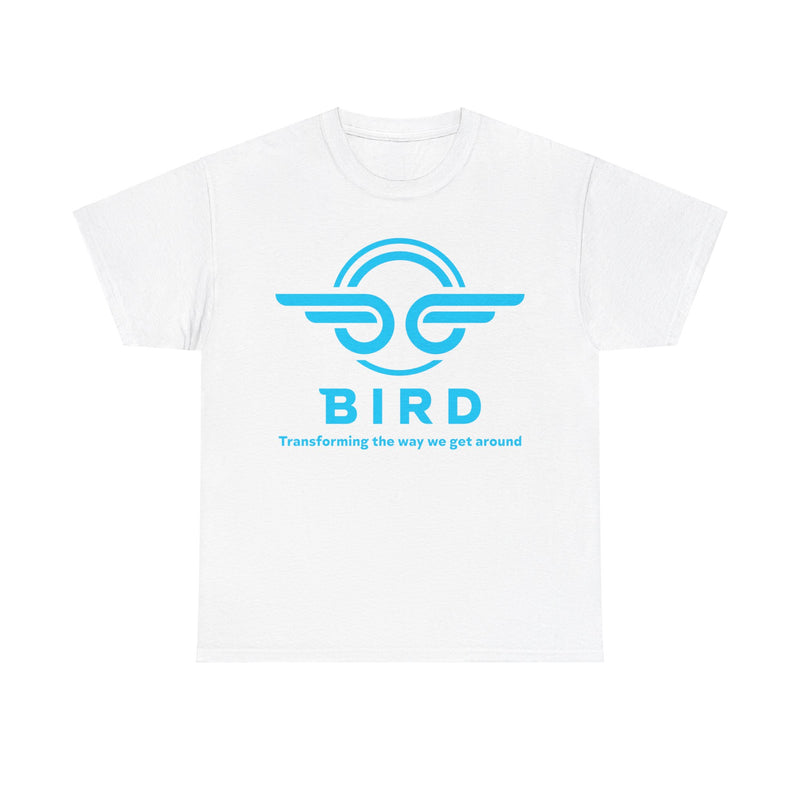
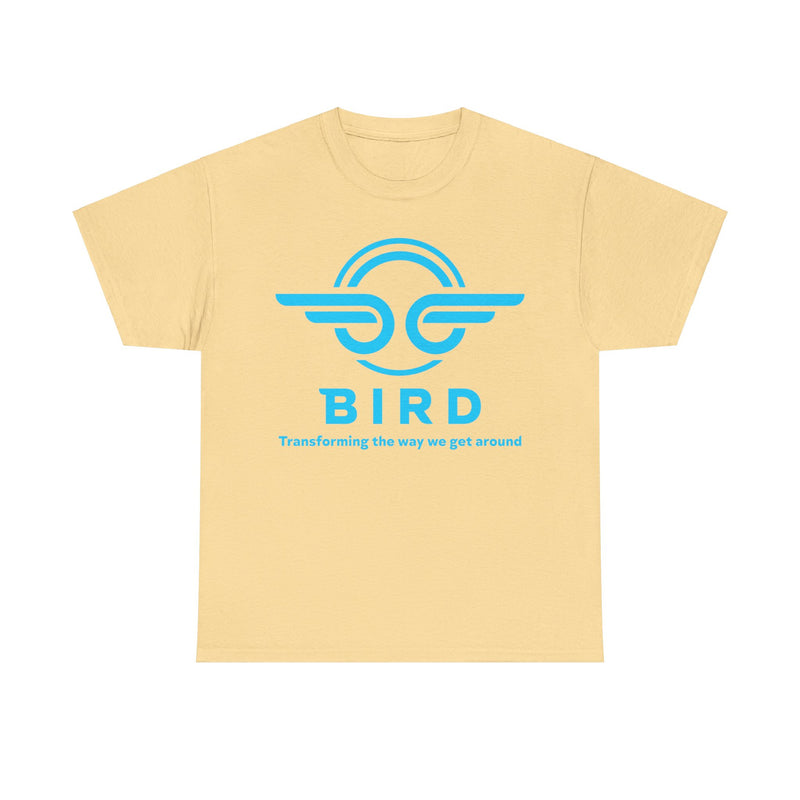
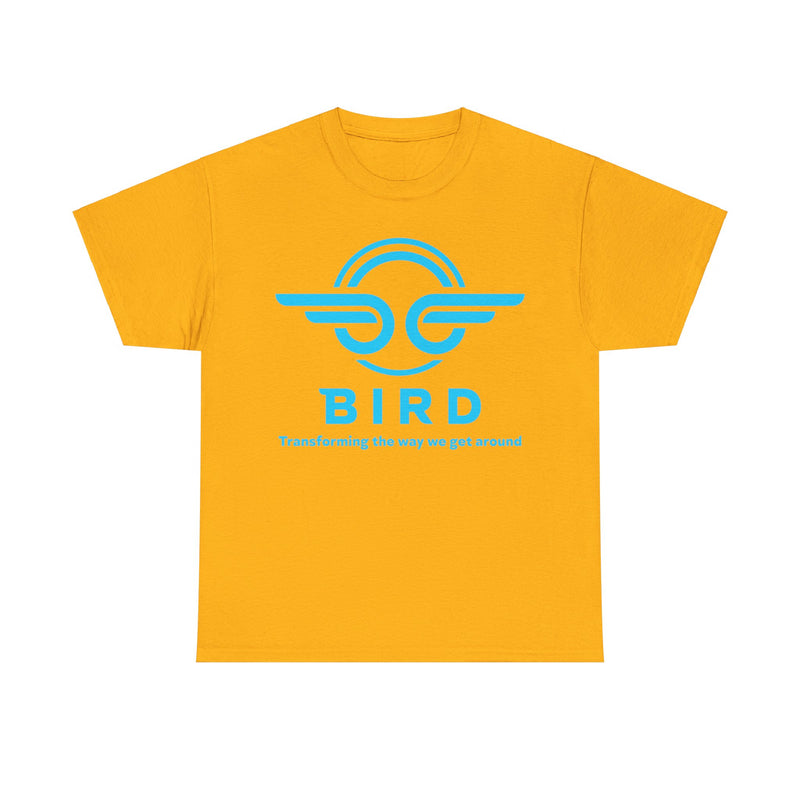

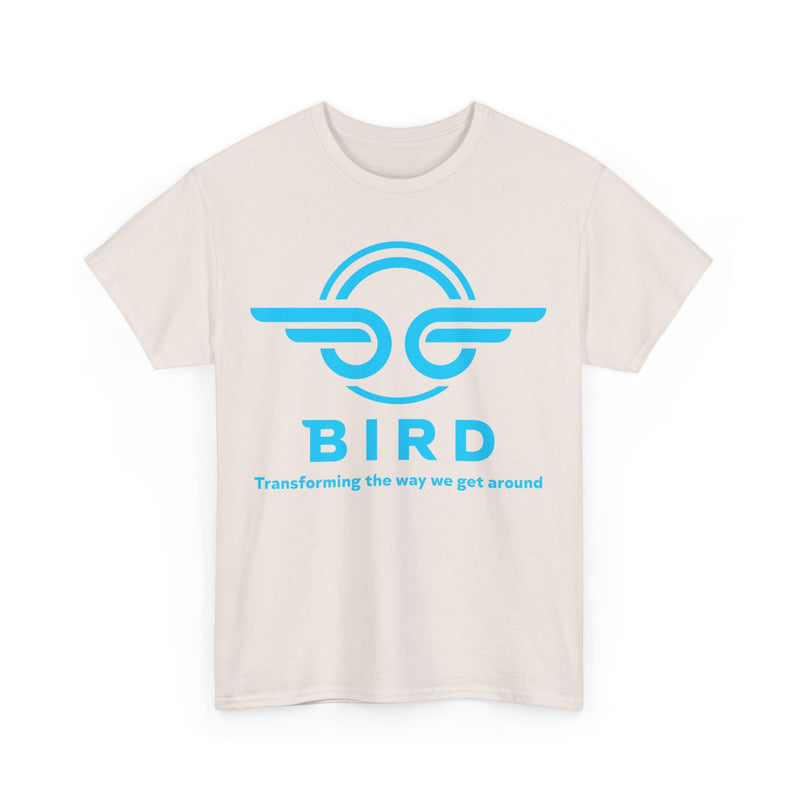


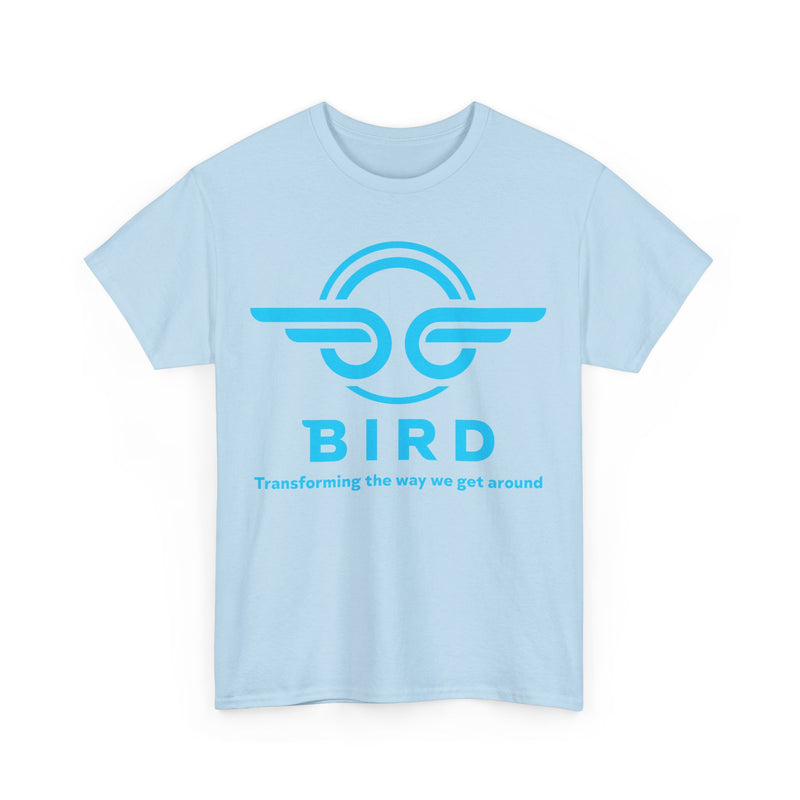


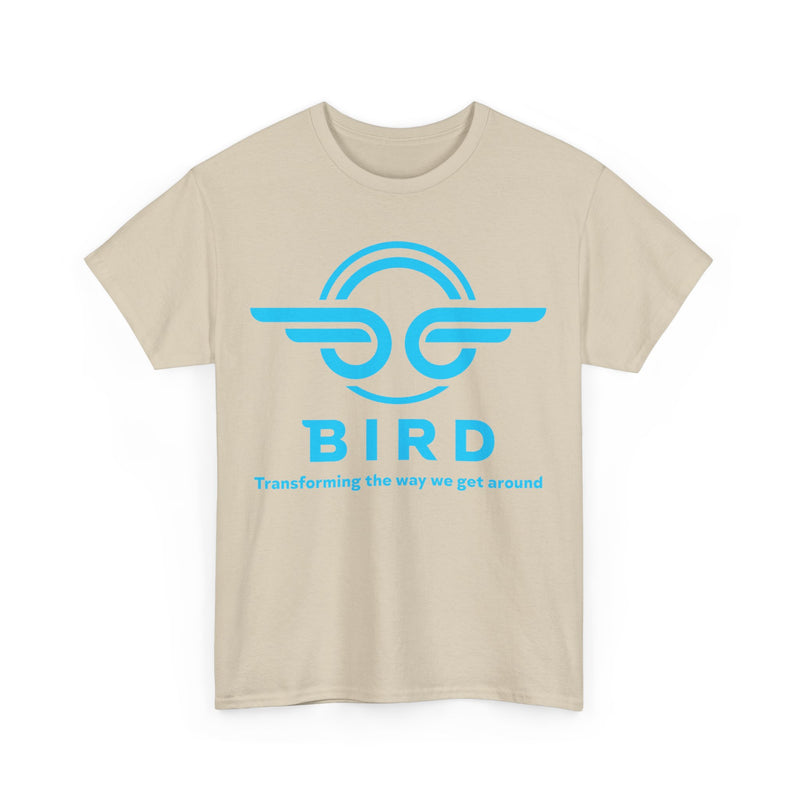


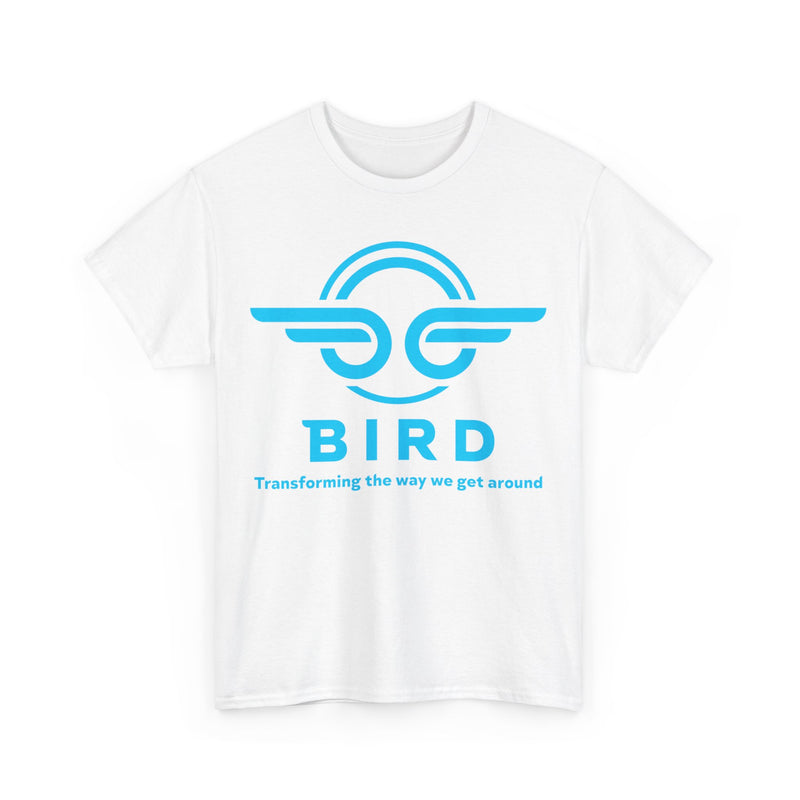


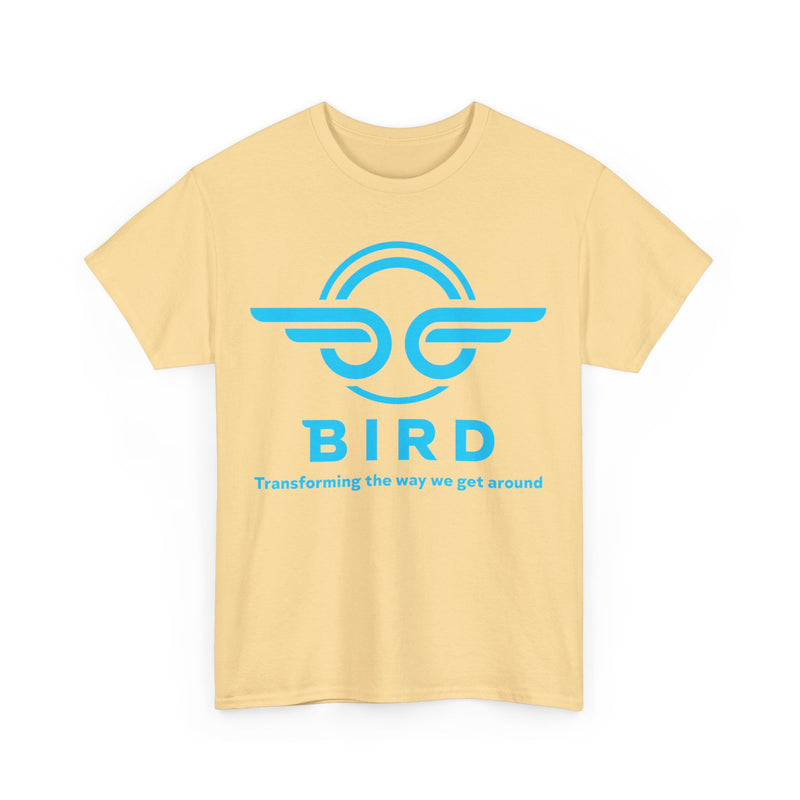


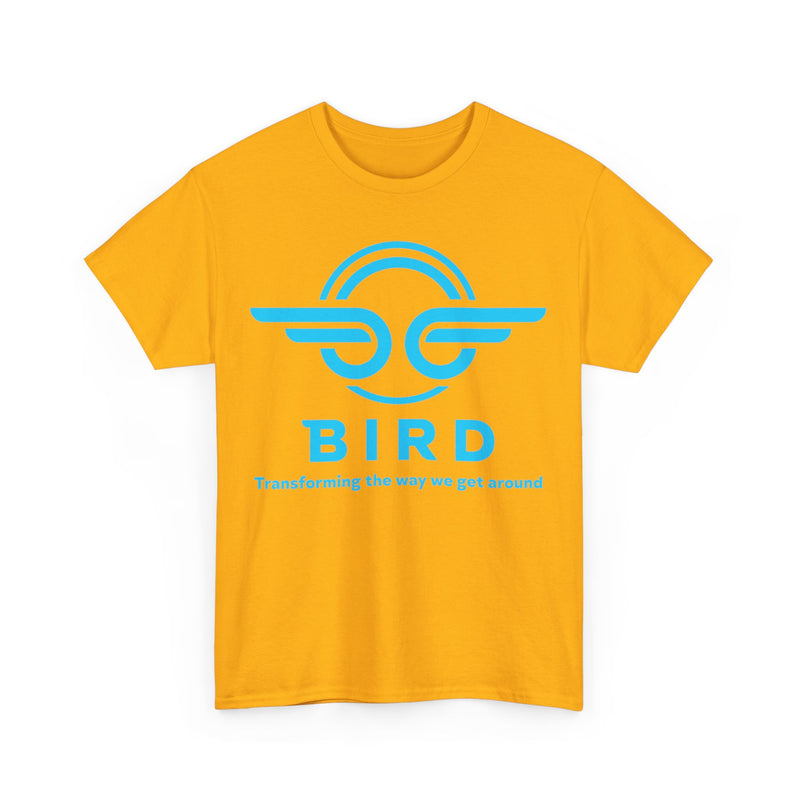

Express your passion for sustainable urban transportation with the Bird Electric Scooter Company T-Shirt. Featuring the iconic Bird logo emblazoned on the front, this t-shirt is not just a fashion statement but a symbol of your commitment to eco-friendly mobility solutions. Made from premium quality cotton blend fabric, it offers comfort and durability, ensuring you feel great while advocating for a greener future. Whether you're riding your Bird scooter through city streets or simply strolling around town, this t-shirt is the perfect way to showcase your support for innovative transportation alternatives.
Why Bird Electric Scooter Company Fizzled Out:
1. Regulatory Challenges: Bird faced significant regulatory hurdles in various cities worldwide. Many municipalities imposed strict regulations or outright bans on electric scooters due to safety concerns and crowded urban infrastructure. Navigating these complex and evolving regulatory landscapes proved difficult for Bird, hindering its expansion and operational efficiency.
2. Safety Issues: The safety of electric scooters became a prominent concern, with reports of accidents and injuries involving riders and pedestrians. Public perception of scooter safety played a role in shaping regulatory responses and consumer trust. Addressing safety concerns while maintaining operational viability posed a challenge for Bird.
3. Financial Pressures: Despite initial investor enthusiasm and substantial funding rounds, Bird struggled with financial sustainability. High operating costs, including scooter maintenance, charging infrastructure, and regulatory compliance expenses, outpaced revenue generation. The company faced challenges in achieving profitability and sustainable growth, leading to financial strain and operational inefficiencies.
4. Market Saturation and Competition: The electric scooter market became increasingly saturated as more companies entered the space, competing for market share and customer loyalty. Established rivals and new startups offered similar products and services, intensifying competition and exerting downward pressure on prices and margins. Bird's ability to differentiate itself and maintain a competitive edge was challenged in this crowded marketplace.
5. Business Model Viability: Bird's reliance on the gig economy for scooter charging and maintenance presented operational challenges and regulatory scrutiny. Managing a decentralized workforce of independent contractors while ensuring service quality and compliance added complexity to Bird's operations. Questions arose about the long-term viability and scalability of this business model, contributing to investor skepticism and market uncertainty.
6. Pandemic Impact: The COVID-19 pandemic further exacerbated Bird's challenges. Lockdowns, travel restrictions, and social distancing measures reduced demand for shared mobility services, including electric scooters. Declining ridership and revenue amid the pandemic strained Bird's financial resources and accelerated its downward trajectory, ultimately contributing to its failure to sustain operations.
























